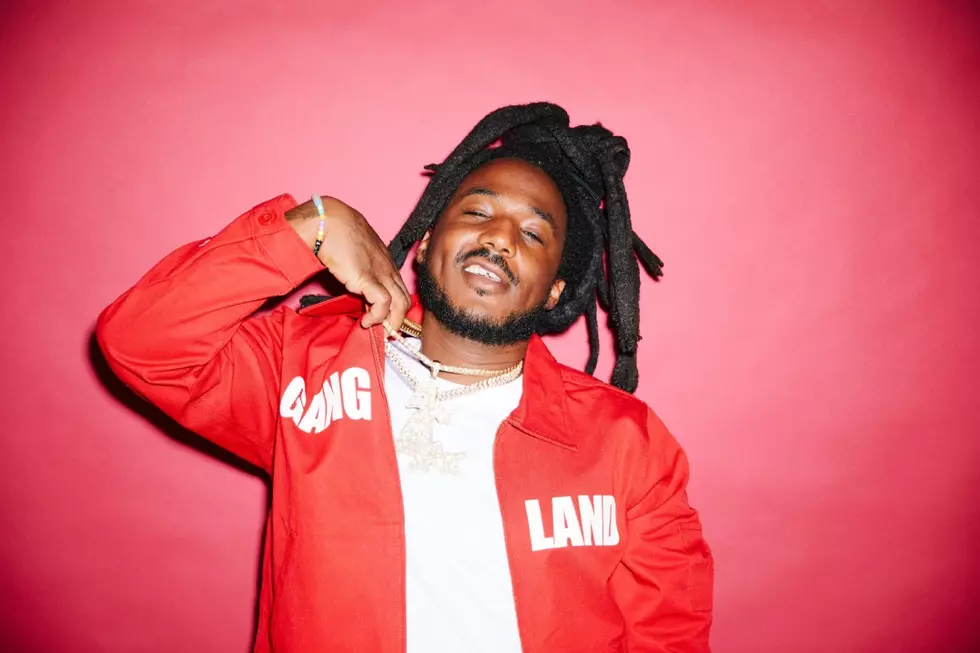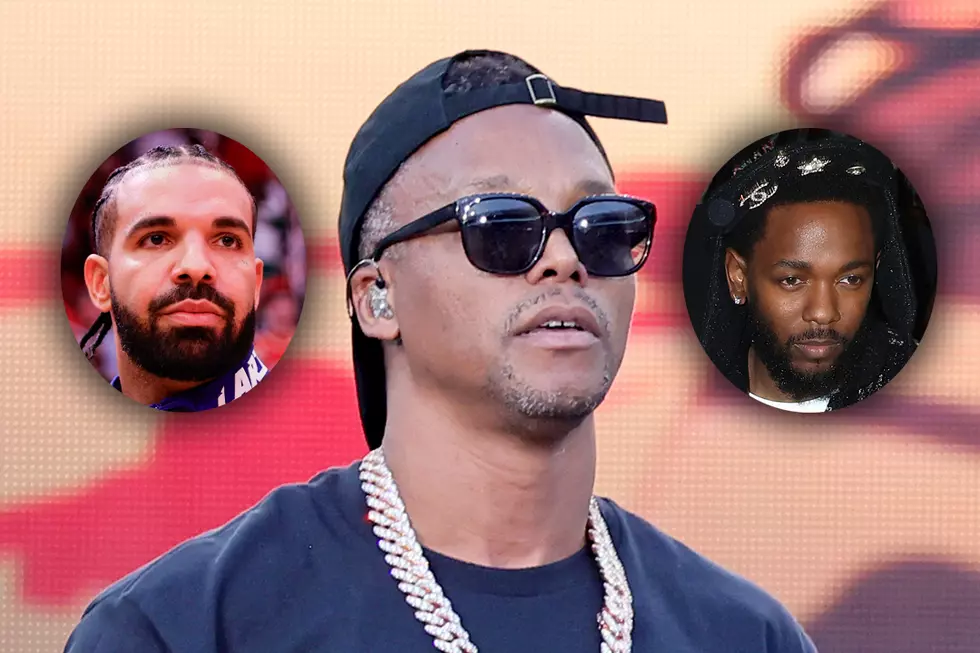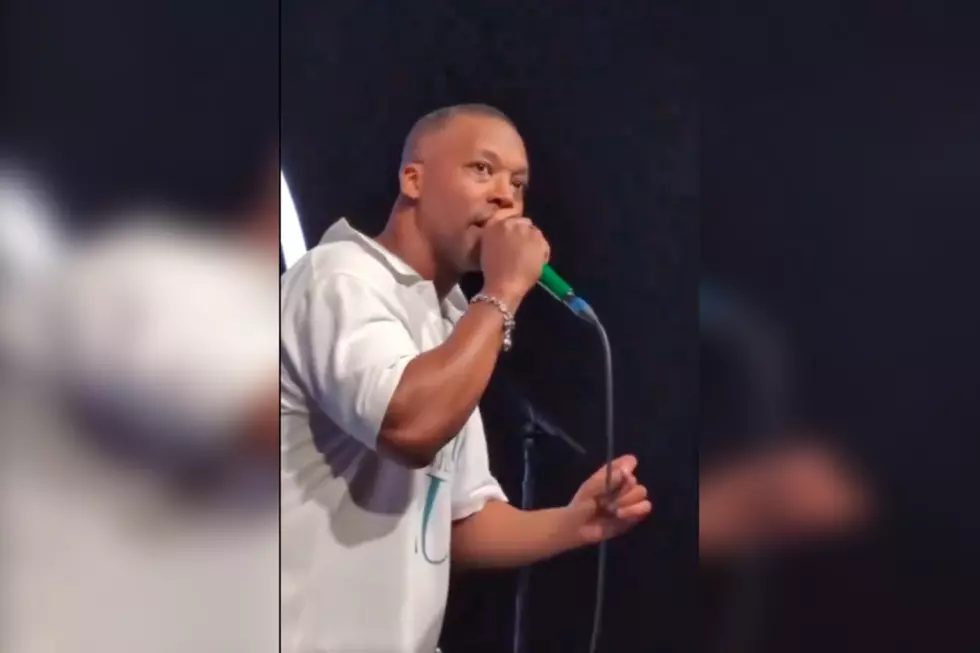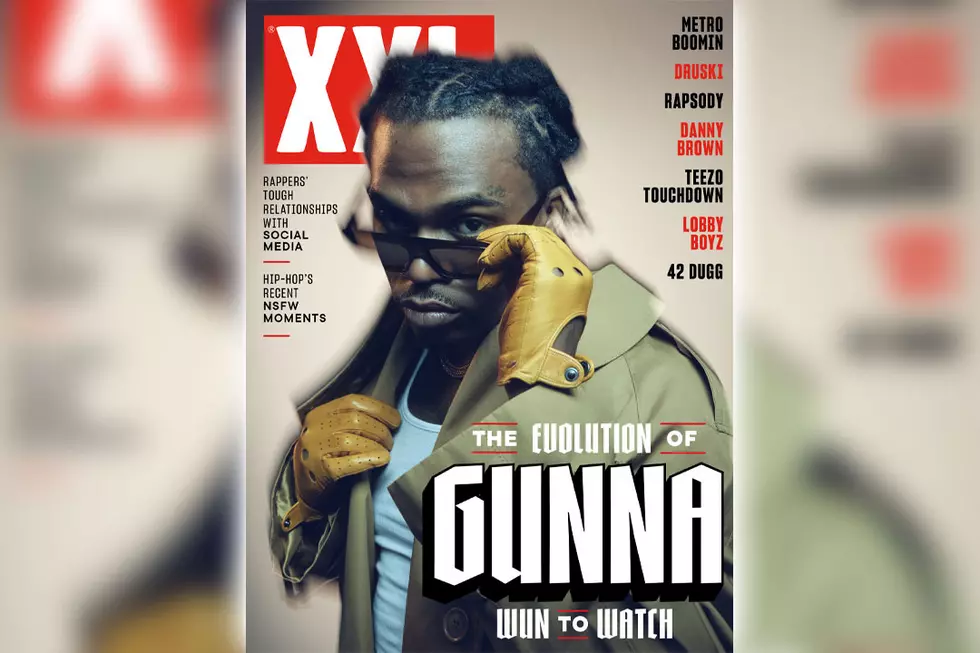
Lupe Fiasco’s ‘Drogas Wave’ Album Is a Vast Story in Need of a Good Editor
The mark of a great concept album is how effectively it combines two opposing forces. Anchoring an entire project under one narrative or theme means that every song should add to the story. In contrast, classic or at least commercially successful albums work because they are malleable—a cohesive showcase for songs that don’t require an instruction manual for consumption. Most artists never master one of these forces, let alone two simultaneously. Lupe Fiasco has done it before on 2007’s The Cool, which makes the failings of his latest work, Drogas Wave, all the more frustrating.
Dense, convoluted and monotonous, Drogas Wave encourages Lupe Fiasco’s worst creative impulses. In the pursuit of writing a grand opus, Fiasco often forgets the basic tenets of two disciplines: writing an engaging story and creating an interesting rap song. Drogas Wave tells the journey of “The LongChains,” a group of African slaves that are thrown from their slave ship and live underwater, determined to fight for their fellow oppressed people.
“When they were submerged in the water their earthly lives expired and they began a new life under and on the water,” Lupe explained on Reddit. “Some walked back to Africa while others stayed in the sea to help fight slavery by attacking and sinking slaveships [sic]. The LongChains disbanded after the end of the transatlantic slave trade however a few were chosen to stay behind to keep watch and as guides for decedents of slaves that found freedom and wanted to return home.”
The album begins with “In the Event of Typhoon,” taken from Joseph Mallord William Turner’s unfinished poem “Fallacies of Hope,” which accompanied his famous 1840’s painting, The Slave Ship. It’s a powerful and concise way to introduce listeners to a weighty topic. Then the album curiously transitions to “Drogas,” which features Lupe rapping the entire song in Spanish. Fiasco does an admirable job delivering his lyrics in a different language, but the track is a sharp detour from the tone of the intro.
“Manilla” is the concept of Drogas Wave at its peak. In one song, Lupe delivers brilliant and simple lines like, “You can accomplish anything if you survive Blackness,” while teaching listeners about the “copper alloy bracelet” used as a form of currency to trade slaves.
“Down” shows the concept stretched to its breaking point. The fictional story of The LongChains is a serious one, but lyrics like “Fish is my friends and the whales is my homies” or “The sharks is my niggas, the dolphins is with us/The crabs is my comrades,” come off as silly and don’t convey the narrative’s gravity.
By the halfway point, Drogas Wave becomes a vastly different album. Lupe sounds more comfortable on a song like 2013’s “Jonylah Forever,” which tells an alternate history where Jonylah Watkins grows up and becomes a doctor instead of being killed by gunfire on the Southside of Chicago at 6 months old.
However, “Imagine” is the album's standout moment. In three verses, Lupe shares the journey of “rapping every word of the magazine covers down at Walgreens” to the difficulties he faced on Atlantic Records. It’s a story that only he could tell and it thrives because of it.
Drogas Wave, the album and story, needs editing. At 24 tracks and 98 minutes long, the bloated project sounds like two distinct albums. Often we learn more from a story by what isn’t written, rather than by what is. Lupe spends so much time telling the story of everything, he leaves little room for the listener’s reflection on anything.
See 20 of Your Favorite Rappers Naming Their Favorite Rappers
More From XXL









